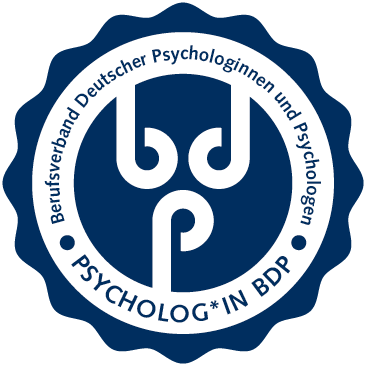


Patric Pförtner
M.Sc. Psychologe, PhD Candidate
Do you find yourself constantly needing to be the center of attention, even in situations where it's not your place to be the focus? Do you crave excessive compliments and validation from others, resorting to social media antics or dramatic behavior to get a reaction?
Is it hard for you to maintain healthy boundaries with others, often blurring the lines to ensure you're noticed? Perhaps you find yourself exaggerating situations or even pretending to need help with simple tasks, just to draw attention and sympathy.
While seeking attention isn't inherently bad, constant and excessive attention-seeking behavior can be a sign of deeper issues. It's important to understand the root cause of this need and develop healthier ways to connect with others.
This isn't a diagnostic tool, but if you experience several of these symptoms frequently and they disrupt your daily life, it's important to seek professional help.
You may ask yourself: Is this self-assessment for you?
If you answered yes to several of the questions above and find yourself constantly seeking attention in unhealthy ways, this test can be a helpful starting point.
While it can't diagnose any conditions, it can provide insight into your behaviors and help you determine if seeking professional guidance might be beneficial.
Finally, this test is free and anonymous. You will not be asked to enter your E-Mail or any personal data.
This online assessment is not a definitive diagnostic tool for attention-seeking behavior. It cannot diagnose any underlying conditions or guarantee whether you do or don't have them.
However, this test can be a valuable self-reflection tool. It can help you identify patterns in your behavior and track any changes over time. You can also share your results with a therapist or counselor to gain further insight and discuss any concerns you may have.
Remember, a qualified mental health professional is the only one who can provide a diagnosis and recommend the most appropriate course of action for you.
All questions refer to the last 14 days. The answer options are graded on a scoring system, where the first answer option is one point and the last is five points. Enter your ratings next to each question and click the "Evaluate" button at the end.
1. I often feel that my self-esteem depends on the approval of others.
2. I find it difficult to accept criticism, even if it's constructive.
3. I feel that I deserve more recognition than I receive.
4. I change my behavior or opinions to gain approval.
5. I find it hard to make decisions without seeking the approval of others.
6. The idea of being alone scares me.
7. My self-esteem is heavily dependent on what other people give me as feedback.
8. I actively seek opportunities to gain attention and compliments of colleagues or friends.
9. I often feel dissatisfied when I don't receive the recognition I expect.
10. As soon as I am criticized, I feel like a complete failure.
11. I feel that my achievements are often overlooked.
12. I am concerned about what other people think of me.
13. I often feel misunderstood or unappreciated.
14. It's difficult for me to appreciate my achievements if they are not acknowledged by others.
15. It's challenging for me to see my own strengths if they are not highlighted by others.
This online screening is not a diagnostic tool. Only a trained medical professional, such as a doctor or a psychiatrist or psychotherapist, can help you with the next steps.
Want to get the most out of this self-assessment? The questions can be a springboard for your next therapy session. Think of them as a tool to help you communicate how you've been feeling and what areas you'd like to focus on.
Here's a tip: Once you finish the test, take note of the questions that seemed most relevant to you. Focusing on the top 3 highest-scoring questions can be a great starting point for conversation with your therapist.
For example, imagine your top 3 questions were:
By bringing these specific questions and scores to your session, you can jump right into a productive conversation with your therapist about managing your attention-seeking behaviors.
This can be incredibly helpful! It allows your therapist to gain deeper insight and develop personalized strategies to help you connect with others in healthier ways.

Copyright © Patric Pförtner 2025
Website made by WebWizr.eu

Important Links
Important Information
All rights reserved. Our website services, content, and products are for informational purposes only. Betterpsychologist.com does not provide medical advice, diagnosis, or treatment.